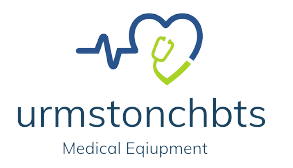Medication therapy management (MTM) is a specialized healthcare service that focuses on ensuring safe and effective medication use to improve patients’ health outcomes. At its core, MTM aims to optimize medication regimens, prevent medication-related problems, and enhance patient understanding and adherence to prescribed medications. This article explores the importance of medication therapy management, the benefits it offers, and how it empowers patients to take control of their health.
1. Individualized Patient Care
MTM is a patient-centered approach that recognizes each individual’s unique health needs and circumstances. Through comprehensive medication reviews and in-depth patient assessments, healthcare providers gain valuable insights into patients’ medical history, current health conditions, lifestyle, and medication use. This information enables them to tailor medication regimens specifically to each patient, maximizing the effectiveness of treatment while minimizing potential side effects or drug interactions.
2. Enhancing Medication Adherence
Adherence to prescribed medications is vital for successful treatment outcomes. However, many patients face challenges in sticking to their medication schedules, leading to suboptimal results. MTM addresses this issue by identifying potential barriers to adherence and developing strategies to overcome them. This may include simplifying medication regimens, providing educational materials, or exploring alternative formulations that are easier for patients to manage.
3. Medication Safety and Avoiding Adverse Reactions
MTM plays a crucial role in medication safety. Healthcare providers conduct thorough medication reviews to identify potential risks and prevent adverse reactions. By closely monitoring medications, dosages, and patient responses, they can detect and resolve any medication-related problems promptly. This proactive approach minimizes the likelihood of medication errors and enhances patient safety.
4. Collaborative Care and Communication
MTM fosters collaborative care by encouraging open communication between patients, pharmacists, and other healthcare providers. Patients are actively involved in their treatment plans, and healthcare providers work together to ensure seamless coordination and continuity of care. This collaborative approach facilitates a more holistic understanding of patients’ health and enables more informed and comprehensive decision-making.
5. Chronic Disease Management
MTM is particularly beneficial for patients with chronic health conditions, such as diabetes, hypertension, or asthma. By closely monitoring medication regimens and regularly assessing patients’ progress, healthcare providers can make timely adjustments to treatment plans as needed. This proactive management helps patients achieve better control of their chronic conditions and improves their overall quality of life.
6. Patient Education and Empowerment
Empowering patients with knowledge about their medications is a central aspect of MTM. Through educational sessions and clear explanations, patients gain a better understanding of their medications’ purpose, potential side effects, and how to take them correctly. This knowledge empowers patients to take an active role in managing their health and make informed decisions about their treatment.
7. Adapting to Changing Health Needs
Patients’ health needs may change over time due to various factors, such as age, lifestyle, or the progression of medical conditions. MTM ensures ongoing monitoring and evaluation, allowing healthcare providers to adapt medication regimens accordingly. This flexibility is crucial in ensuring that patients receive the most effective and appropriate treatment at every stage of their health journey.
Conclusion
Medication therapy management is a patient-centric service that optimizes medication use, enhances adherence, and promotes patient safety and well-being. Through individualized care, patient education, and collaborative efforts, MTM empowers patients to take control of their health and achieve better treatment outcomes. By embracing medication therapy management, patients can experience improved health, reduced risks of medication-related issues, and a higher quality of life.



